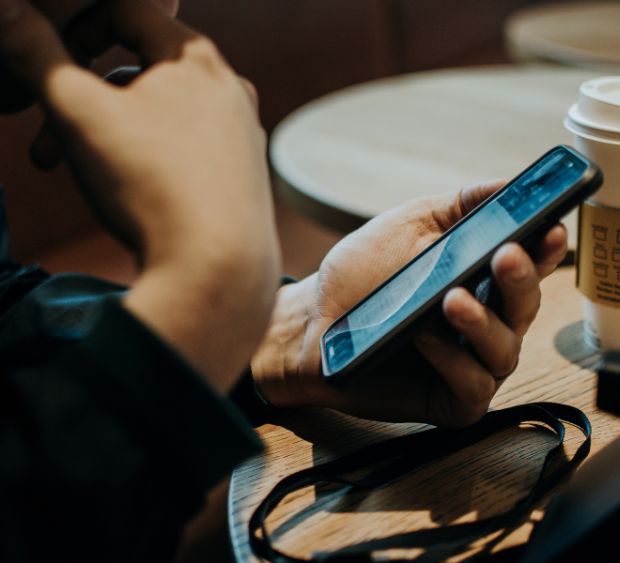Research
- Home
- Research
Welcome to Nomophobia Research Hub!
In an era dominated by digital connectivity, understanding our relationship with mobile phones has never been more crucial. With updated information, we can harness the power of unstoppable technological advancements and better understand their implications in our daily lives to build a better future for all.
This research page is your gateway to the insightful findings and ongoing studies revolving around nomophobia — the fear of being without a mobile phone.
Why Nomophobia Matters:
Nomophobia isn’t just a buzzword; it’s a phenomenon shaping our daily lives. As we increasingly rely on our phones for communication, information, and entertainment, the impact of nomophobia on our well-being becomes more profound. In addition, understanding how individuals interact with their devices contributes to a broader conversation about the role of technology in our lives
This website is a testament to our commitment to unravelling the complexities of this digital fear and better understand how technology impacts and shapes our lives. Our research efforts are aimed at unveiling valuable insights that can guide us in addressing this intersection between technology and human experience
Our Mission:
Ongoing research is not just a pursuit but a necessity in understanding our intricate dance with technology. Through extensive surveys, interviews, and studies, we aim to delve into the intricacies of nomophobia to provide you with meaningful insights.
The journey to understanding nomophobia starts here, and we invite you to be part of this exploration. Check back regularly for updates as we continue to peel back the layers of nomophobia, uncovering its nuances and impacts on our lives. Explore, discover, and join us on this fascinating expedition into the heart of nomophobia!”


Citations and Methodology
Research Methodology:
Our studies are conducted through a rigorous and transparent methodology. Our research is primarily based on methods such as surveys, interviews, and data analysis, the backbones of our research process. We strive for accuracy, reliability, and inclusivity in gathering insights.
Citations and References:
With a clear commitment to maintaining credibility, we draw on established research methodologies and reputable sources. Our findings are rooted in a foundation of scholarly research, ensuring the trustworthiness of the insights we share.
Nomophobia Research Studies
Latest Research: Latin America Phone Habits Survey
We’ve embarked on a fascinating journey into the phone habits of over 3,000 individuals across Latin America. This survey is designed to uncover the intricate relationship between users and their mobile devices, exploring usage patterns, preferences, and the prevalence of nomophobia in the region. Our findings promise a captivating snapshot of how technology intertwines with daily life in Latin America.
Key Insights:
- Nomophobia Hotspots: Identify regions where nomophobia is more prevalent.
- Peak Usage Times and Places: Discover where and when users are most tethered to their devices.
- Demographic Variances: Explore how age, gender, and location impact phone habits.
- Our visuals aim to paint a vivid picture, making the complex world of Nomophobia accessible to all.
Research Data Highlights:
Smartphone addiction
- 77% of survey respondents said they check their phone as soon as they wake up in the morning, before doing anything else
- Meanwhile, 84% of Latin American survey respondents check their phone as the last thing they do each night before going to sleep
- 45% acknowledged that overuse of their phone could cause them to neglect family or friends
- 28% indicated depression as a risk factor depending on the frequency of smartphone us
Phone perks
- 52% say they found work using their mobile phones.
- 24% found their partner on social media / dating apps.
Nomophobia
- 71% experience anxiety at the thought of not being able to contact family, friends, or colleagues.
- 54% report feeling anxious about not being able to check emails and messages.
- 50% of respondents in Latin America are anxious about the inability to search for information.
- 49% of respondents feel anxious at the thought of not being able to access their bank accounts.
- 78% of Latin Americans now consider themselves dependent on their smartphone for daily activities
Health impacts of intensive phone usage
- 61% report that their frequent use of their phone could cause insomnia
- 59% mention back or neck pain and dry eyes as symptoms of phone overuse
- 51% said being disconnected could cause anxiety
- 37% have had arguments with loved ones over mobile phone usage.
- 24% have suffered an accident while using their phone (e.g. crash, getting run over, or tripping in the street)
Behaviour changes
- 66% of participants admit to checking their mobile phones throughout the day, even without receiving notifications
- 73% recognise that the way they use their mobile phones today is very different from the way they did five years ago
The data also indicates a growing awareness of the adverse effects of excessive smartphone use, as well as the need for more discussion and possible interventions to deal with this emerging phenomenon with 40% of respondents stating that they could possibly be affected by nomophobia and with 8% saying that they already suffer from the condition.
Stay Tuned and Join Us in Shaping Future Research
Our commitment to unravelling the layers of nomophobia doesn’t stop here. Expect more in-depth studies on various aspects of digital dependence to come. Future research will delve into the evolving landscape of technology, including emerging trends, behavioural shifts, and the intersection of nomophobia with broader societal changes.
Your engagement and contributions make this journey meaningful. Contact us to share your ideas and help shape our future research
About Nomophobia
At Nomophobia, we envision a world where technology enhances lives, fosters innovation, and connects people across boundaries. We believe that by staying informed and embracing the latest technological advancements, we can harness the power of innovation to create a better future for all.
